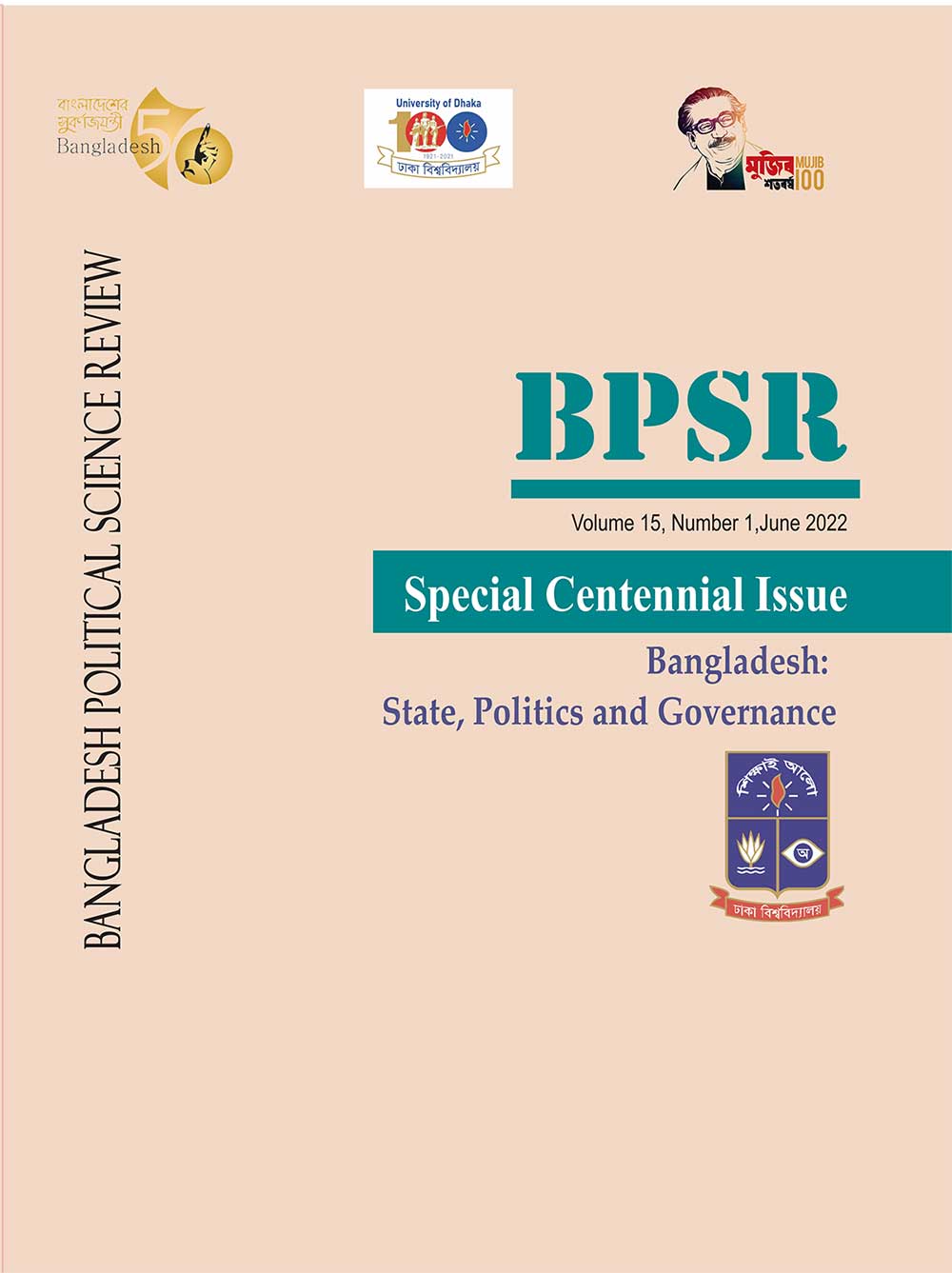
BANGLADESH POLITICAL SCIENCE REVIEW
Geopolitics and International Negotiations: Challenges and Options for Bangladesh
* Mohammad Aynul Islam & Rubel Molla
Published: 14 October 2022
Bangladesh Political Science Review
Volume 15, Number 01, June 2022
DOI : https://doi.org/10.57074/ZHWA8138
ISSN 1609-7289 (Print)
ABSTRACT
The paradigm shifts in the centre of gravity of global power, growing multipolarity, and enhanced role of small powers in international relations have been affecting the negotiation strategies around the world in recent decades. Moreover, the relative decline of the US’ hegemonic influence and rise of China and India as major regional powers have relocated the geostrategic tilt of the world towards Asia. Consequently, the power politics within international relations has created more geopolitical hotspots, overlapping political and economic partnerships, and risks of conflict. These emerging realities have also been creating strategic uncertainties in the Asian region. Balancing the emerging geopolitical realities and enhancing cooperation by minimizing the competition within the great power rivalry are the major challenges facing the countries of this region. Bangladesh, being a key littoral of the Bay of Bengal and hub of regional and interregional trade and commercial activities, needs to balance and negotiate these emerging challenges in order to uphold its national interests. Bangladesh is applying negotiation as a key instrument to find solutions to bilateral and multilateral issues with its neighbours. Bangladesh is efficiently navigating and balancing the geopolitical competition in this region and has achieved remarkable success, particularly with regard to climate negotiation, solving the land boundary and maritime disputes with its neighbours, trade negotiations, and ensuring vaccine supply. Balancing the China-US and China-India competition in the Indo Pacific region and ensuring Bangladesh’s economic interests by navigating the competition, achieving the sustainability of the post-LDC graduation development momentum, dealing with the Myanmar and Rohingya problem, and managing the complexity of water sharing, however, remain the main challenges to the success of the country’s negotiation strategy. This paper argues that Bangladesh should not direct its foreign policy goals and negotiation approach towards any radical realignment or join security alliances considering its domestic development aspirations but, rather, should move forward with a balancing strategy. This balancing strategy should include an adaptive approach that could enable Bangladesh to maximize its national interests by minimizing the conflicts or competition in this region and ultimately enhancing the strategic culture of the country.
Keywords: Geopolitical Order, Negotiation Strategy, Bangladesh, Challenge, Option
Notes on Contributors
* Mohammad Aynul Islam is an Associate Professor at the Department of Political Science, University of Dhaka, aynul.islam@du.ac.bd. Rubel Molla is a Research Fellow at the Bangladesh Institute of International and Strategic Studies (BIISS), rubel@biiss.org.
